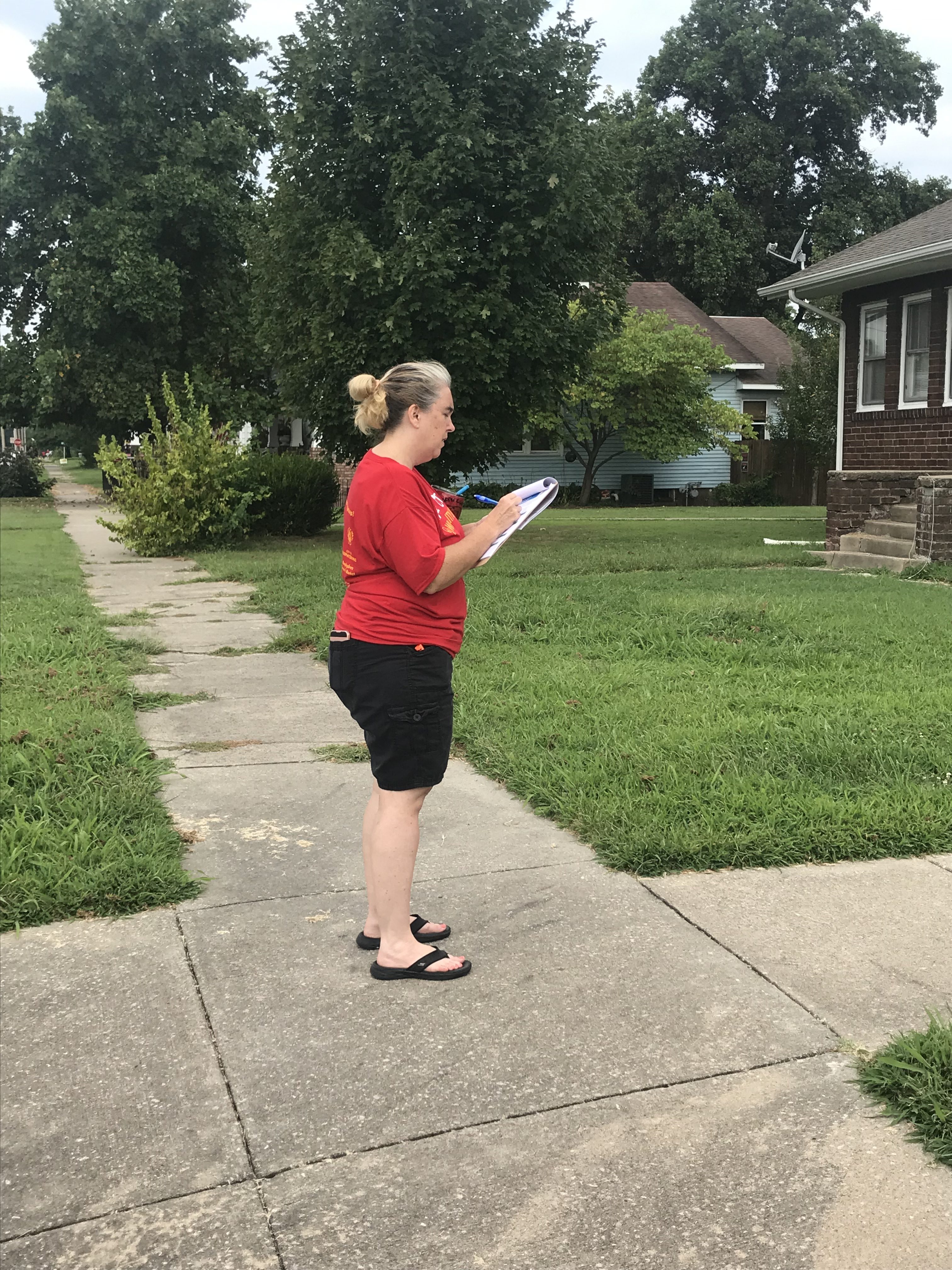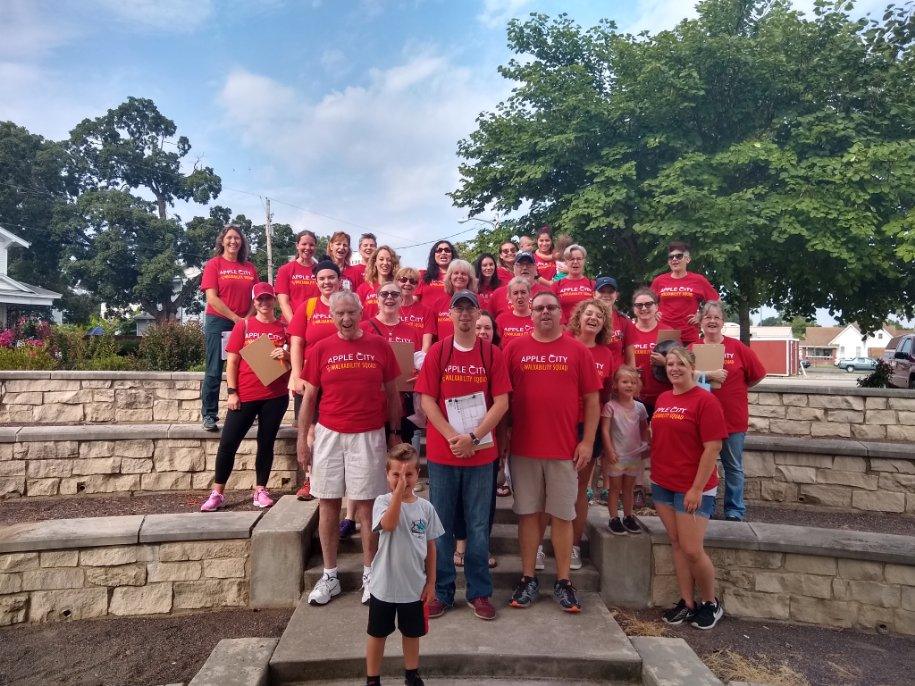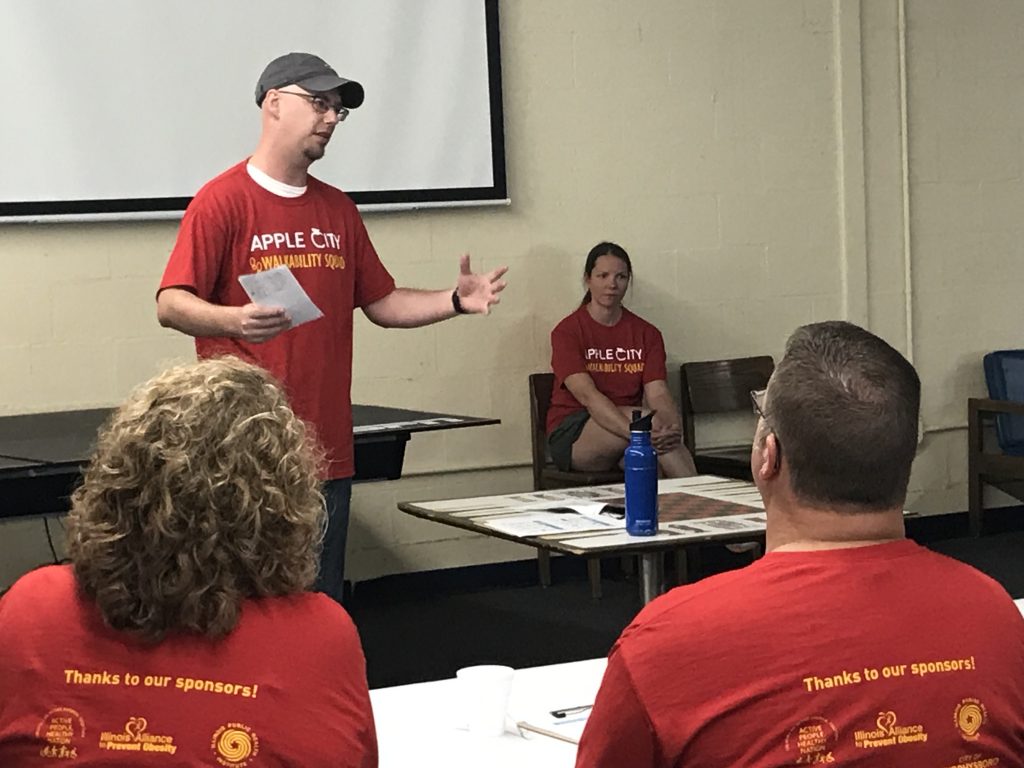Did You Know?
Paving the way to safer streets

Murphysboro, Illinois, is on its way to creating safer streets for its residents.
The city collaborated with the Jackson County Health Department and Active Trans to conduct a sidewalk audit as a first step toward enhancing the city’s sidewalks and promoting physical activity.
In the summer of 2019, 31 community residents volunteered to assess the condition of all 125 miles of sidewalks in Murphysboro, which is located about 300 miles south of Chicago.
They examined and rated every sidewalk and crosswalk in the city and performed a sidewalk gap analysis, mapping out where sidewalk connections are needed and prioritizing those needs.
The volunteer team identified 1 linear mile of gaps and 13 miles of sidewalk rated as poor or fair and in need of getting replaced.
In March 2020, the village adopted the sidewalk plan, which lays out a comprehensive guide for improving sidewalks in the community. The plan will help the city leaders use grant money earmarked for sidewalk repair.
Murphysboro, like many low-income communities, has been unable to keep up with the maintenance of its sidewalks and the need far exceeds the budget the community has available.

“[The sidewalk audit] was a great success and a way to help build a healthier community, not to mention provided some much-needed information about the status of our sidewalks throughout Murphysboro,” said Will Stephens, mayor of Murphysboro.
A recent study found that 26.7 percent of residents in Jackson County, where Murphysboro is located, do not take part in any type of physical activity during their leisure time. The report also found that more than half of Jackson County residents are overweight or obese.
More than 18 percent of Murphysboro’s residents live below the poverty line and the median household income is $36,000 (the Illinois median household income is $63,000).
Thanks to Active Trans’ long-standing partnerships with public health agencies, we have been able to provide free technical assistance to low- and moderate-income communities that typically cannot afford do projects like this.
Murphysboro officials contend that improvements to its sidewalks will spur its residents to be more physically active, helping them reduce their risks for obesity-related diseases. Walking is an easy way to incorporate physical activity into their weekly routines and ultimately make walking and other forms of health and fitness a lifelong habit.
The sidewalk audit was part of the Illinois State Physical Activity and Nutrition (ISPAN) program, a five-year initiative to boost physical activity and improve nutrition for Illinoisans. ISPAN specifically focuses on low-income and rural communities as well as communities of color that have been hardest hit by chronic diseases like type 2 diabetes and heart disease.
Make a Donation
Your tax-deductible donation supports the important work that Active Trans does throughout the region
